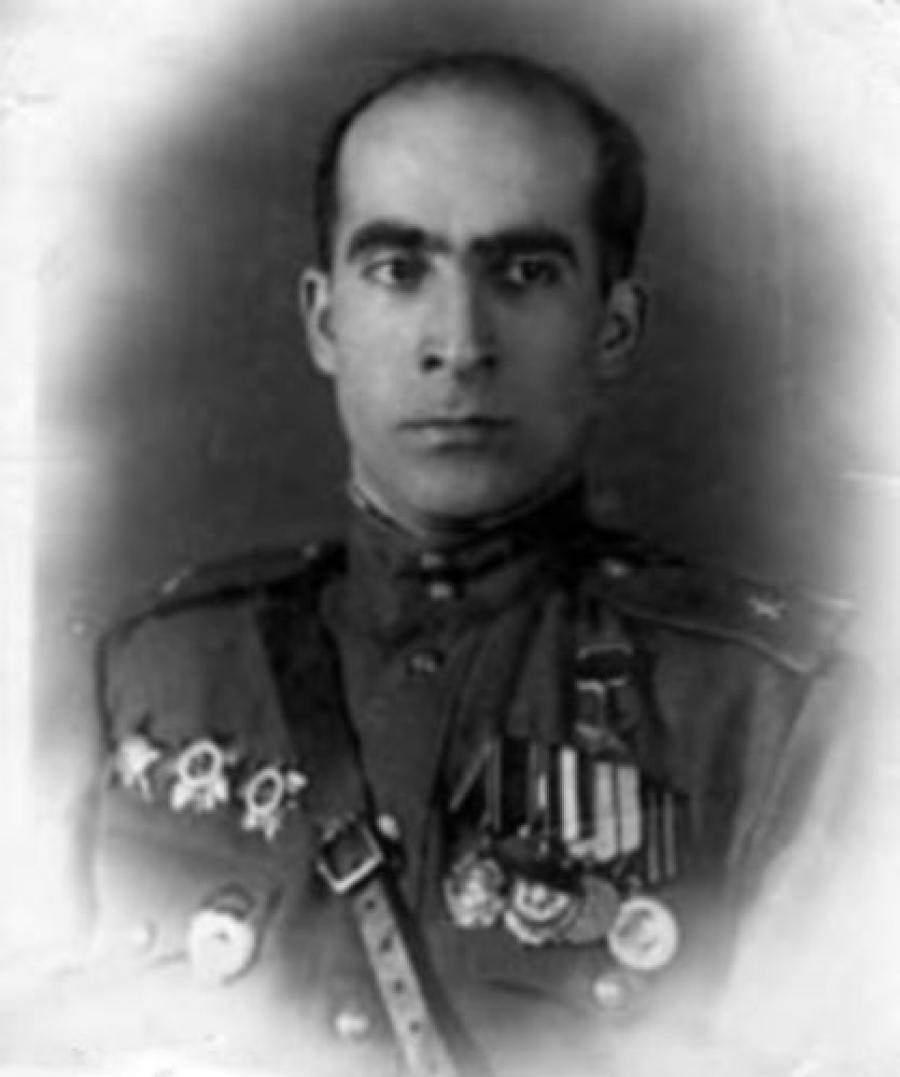Shetiel Abramov was born in 1918 in Derbent (in Dagestan) into a family of Mountain Jews. After completing seven years of school, together with his family, Abramov moved to the city of Makhachkala, where he finished middle school and then entered the Petroleum Institute in Groznyi. However, he did not graduate because he was drafted into the Red Army in July 1941, soon after the outbreak of the Soviet-German war. After a short course at the Military-Infantry School in Groznyi, in December 1941, he was sent, with the rank of lieutenant, to the front, assigned to the 242nd Rifle Division.
Abramov fought on the South-West Front, then on the 3rd Ukrainian and 1st Belorussian Fronts and took part in the forcing of the Dniester, Vistula, and Southern Bug Rivers. During that time, he was wounded seven times, but every time he returned to the front lines. In February 1945, during the fighting for Poznań in Poland, he assumed command of his battalion when its commander was killed. Shetiel also participated in the capture of Berlin.
Abramov ended the war with the rank of guards' major. In May 1945, he was awarded the honor of Hero of the Soviet Union. He also received the Order of Lenin, the Order of the Red Banner, two Orders of the Patriotic War, 1st Class and 2nd Class, the Order of the Red Star, and some medals.
After the war, Shetiel Abramov was sent to study at the military academy in Moscow. However, after he was seriously wounded on the training grounds there, he was not able to continue his military career.
In 1946, he returned to Groznyi, where the resumed his studies at the Petroleum Institute that had been interrupted by the war. After defending his dissertation at the Institute, he worked until he retired in 1992, ending his career as dean of the geological exploration faculty.
Shetiel moved to Moscow in 1993. He died there in 2004 and was buried in the Domodedovo Cemetery. A street was named in his honor in his native Derbent.







